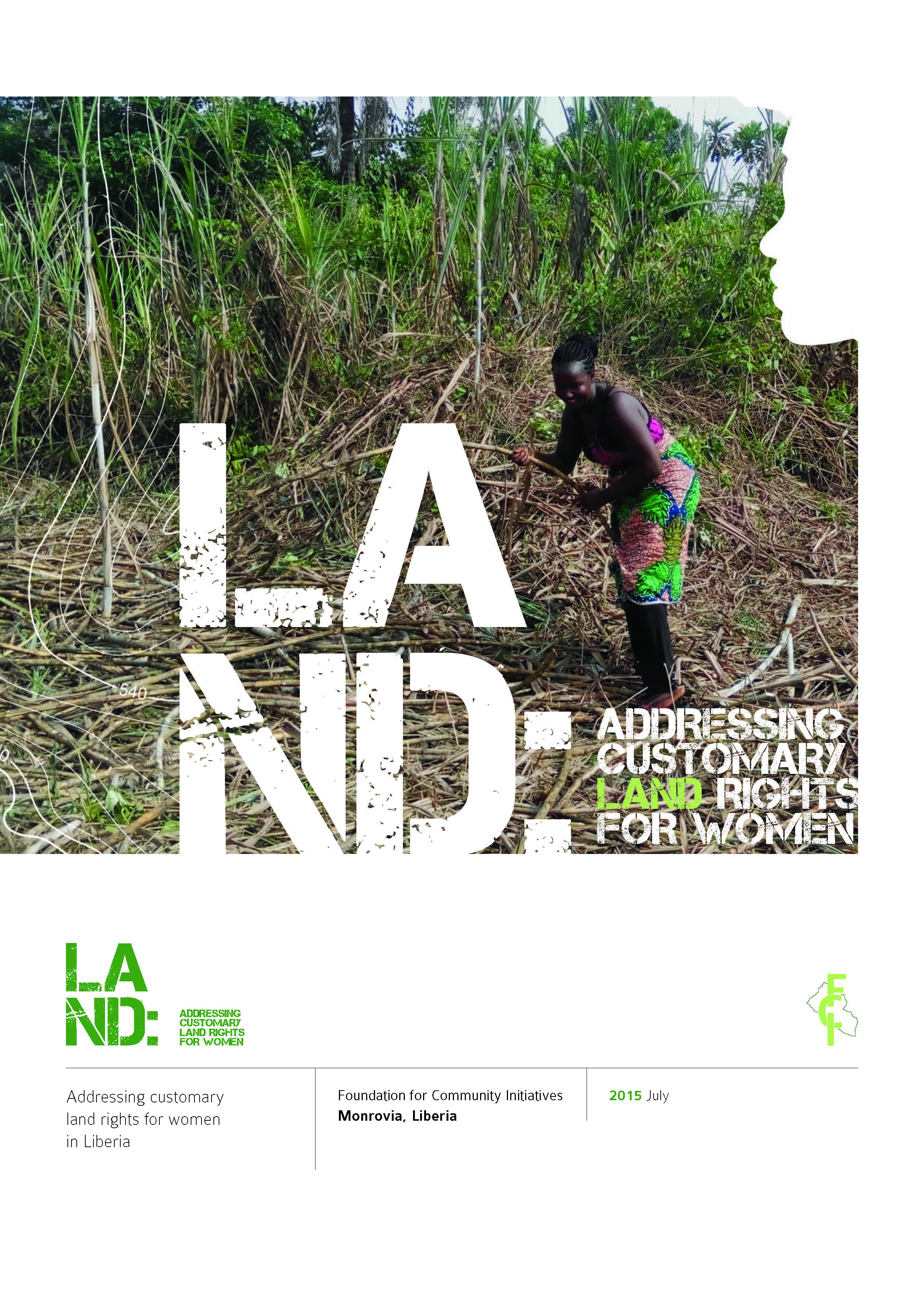Date: July 1, 2015
Land is a key determinant of rural livelihoods, a central building block for effective economic growth, and a pivotal asset to the social and political stability of a nation. In Liberia insecure land tenure continues to fuel widespread internal conflict, enable land grabs by foreign concessions and local elites, and increase deforestation. Women in Liberia are particularly vulnerable, as they remain the largest marginalized group in their access to land rights and ownership due to traditional norms, inadequate legal rights, and weak implementation of existing laws. This report has been synthesized from field research in 17 communities within three counties in Liberia — Gbarpolu, Lofa and River Cess — as well as a comprehensive literature review. The findings from this study are intended to help shape advocacy that promotes the land rights of women; inform the current development of laws on the legal gaps which limit women’s land rights; and more effectively support and empower women in their access to and control over customary land. The conclusion will give recommendations for legal and policy reform governing customary land tenure for the attention of policy-makers, development agencies, and civil society.

